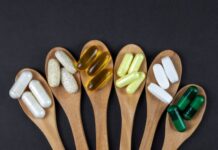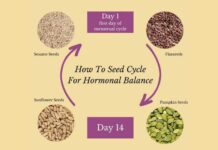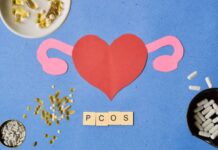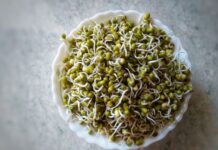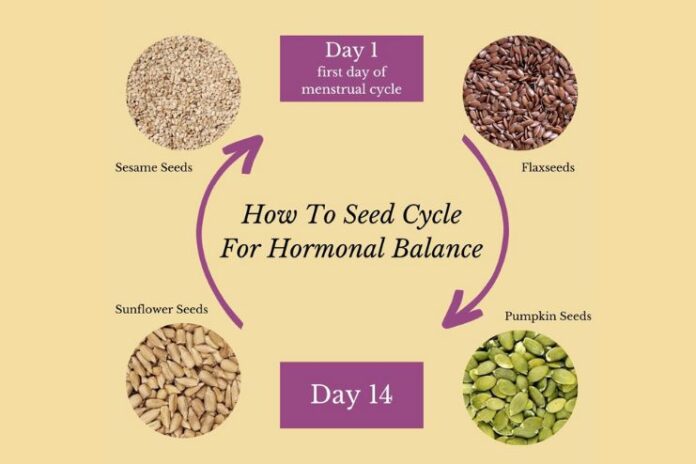Hormonal imbalances are increasingly common, and maintaining a balance has become challenging due to lifestyle factors. Stress, poor diet, and environmental factors disrupt hormonal balance and contribute to conditions like late periods, PMS, acne, mood swings, and infertility.
A trending new way to balance these hormones brought about by menopause, fertility issues, or any other hormone-related problems is called seed cycling.
Seed cycling is a cost-effective method for supporting the natural regulation of hormones. Eating flaxseeds, pumpkin seeds, sesame seeds, and sunflower seeds at different points in your cycle helps balance estrogen and progesterone levels, supporting a smoother, more stable menstrual experience.
So, let’s learn how hormonal balance affects health, the science behind seed cycling, and how it can benefit various areas of life.
Read More: How Hormones Impact Your Sleep Cycle at Every Age
Understanding Hormonal Balance
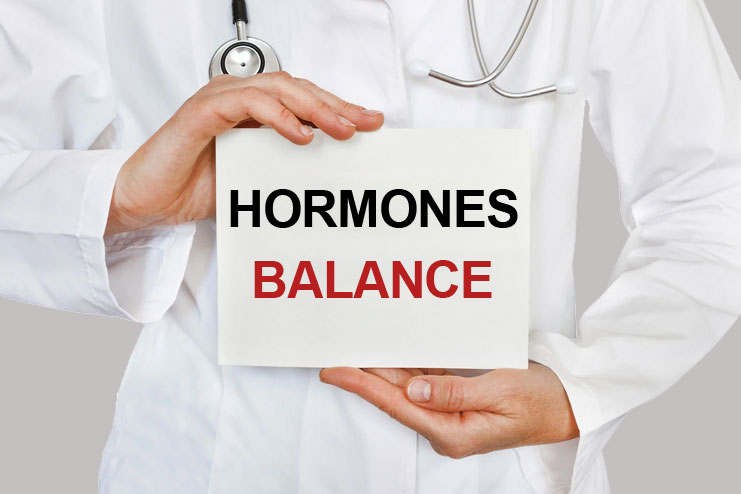
Hormones are chemical messengers important for regulating different physiological processes in the body, ranging from growth to metabolism and reproduction. Estrogen and progesterone are the hormones significant to the female reproductive system.
Normal Estrogen and Progesterone Functions in the Body
Estrogen
Estrogen is essential for the development and maintenance of female reproductive tissues, including the ovaries, uterus, and vagina. Beyond reproduction, it also affects the urinary tract, heart, blood vessels, bones, breasts, skin, hair, pelvic muscles, and brain.
Estrogen contributes to secondary sexual characteristics like pubic and underarm hair growth and influences the musculoskeletal and cardiovascular systems.
Progesterone
Progesterone regulates the menstrual cycle and supports pregnancy by preparing the uterine lining for implantation and helping maintain pregnancy. It also counteracts estrogen by reducing tissue sensitivity to estrogen receptors
Common Hormonal Imbalance Symptoms
When there is excess or insufficient hormones in the bloodstream, it can result in health issues. Some of the common symptoms include:
- Irregular Periods
- Premenstrual Syndrome (PMS)
- Menopause Symptoms
- Acne
- Mood Swings
Read More: Understanding Hormonal Imbalance and Its Impact on Fertility
What Is Seed Cycling?
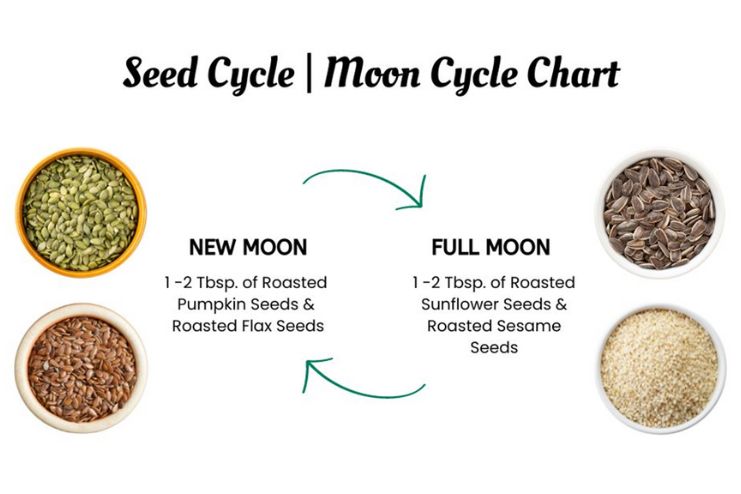
Seed cycling is a natural method for supporting hormonal balance by eating specific seeds at different phases of the menstrual cycle to enhance the body’s own hormone production.
While seed cycling is popular in holistic health circles, there is little scientific evidence to confirm its effectiveness for hormonal balance.
How Seed Cycling Works
Seed cycling helps as they contain nutrients that may affect the production and metabolism of estrogen and progesterone.
Follicular Phase (Days 1-14): Seeds that Help Estrogen
This phase lasts from the first day of menstruation to the day of ovulation; during this period, estrogen levels slowly rise.
Flaxseed and Pumpkin Seeds
- These seeds have phytoestrogens that support estrogen levels.
- Flaxseed is high in lignans, which help regulate estrogen metabolism.
- Pumpkin seeds contain sufficient zinc to support progesterone production in the luteal phase of the cycle.
Spectrum Essentials Organic Ground Premium Flaxseed
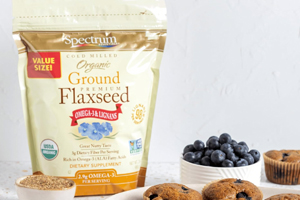
GERBS AAA Raw Pumpkin Seed Kernels
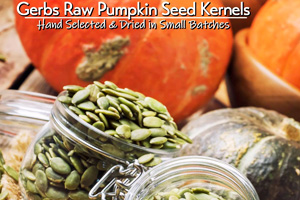
Luteal Phase (Days 15-28): Seeds that Sustain Progesterone
This phase is the period after ovulation when progesterone rises to prepare the body for a potential pregnancy.
Sesame and Sunflower Seeds
- Sesame seeds provide lignans that help lower estrogen levels if they are too high.
- Sunflower seeds are high in vitamin E, which helps produce more progesterone.
McCormick Culinary Whole Sesame Seed

GERBS Raw Whole Sunflower Seeds
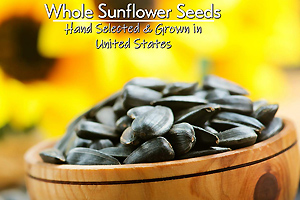
Lunar Cycle Seed System
Seed cycling can be adapted for women with irregular cycles, including those with PCOS, perimenopause, or menopause. It can be aligned with the lunar cycle by starting flax and pumpkin seeds on new moon days and switching to sesame and sunflower seeds on full moon days.
Including these nutrient-rich seeds in your diet may support overall health and hormonal balance.
Read More: 20 Benefits of Sesame Seeds You Didn’t Know of
Health Benefits of Seed Cycling

The benefits of seed cycling include:
- Regulation of Menstrual Cycles: According to experts, seed cycling regulates menstrual cycles and even treats irregular periods or amenorrhea (R).
- Reduction of Premenstrual Syndrome (PMS) Symptoms: PMS symptoms such as mood swings, bloating, and breast tenderness can be alleviated through seed cycling. The composition of nutrients in the seeds is said to reduce these symptoms.
- Support for Fertility and Reproductive Health: Seed cycling can improve fertility and promote reproductive health by encouraging a balance in hormones that enhances conception.
- Improvement of Skin Health: It is believed that seed cycling may reduce skin problems such as hormonal acne via hormone-balancing effects. Certain anti-inflammatory properties of seeds are believed to ensure clearer skin.
- Alleviation of Menopausal Symptoms: Seed cycling is very effective in alleviating menopausal symptoms, such as hot flashes and night sweats. Phytoestrogens present in certain seeds are believed to replicate estrogen in the body, thus giving relief from such symptoms.
- Enhancement of Hair Health: Certain supporters of this activity indicate that seed cycling can promote hair health, help reduce hair fall, and improve hair texture.
- Support Thyroid Function: Seed cycling assists the regulation of thyroid hormones, aiding thyroid function.
- Mood Support and Stress Management: Seed cycling helps improve mood and manage stress by balancing hormones.
- Weight Management: Seed cycling helps with weight management by regulating the hormones that affect appetite and metabolism.
- Improvement of Digestive Health: The seeds used in seed cycling provide fiber, which is believed to help improve digestive health by easing constipation and sustaining a healthy gut microbiome.
Although many practitioners report wonderful results from seed cycling, scientific backing is very limited at present. Most claims stem from personal anecdotes and experiences, with very few scientific studies supporting them. However, seeds such as flax, pumpkin, sesame, or sunflower are good sources of nutrients required for optimum health.
- According to a Reddit user, “My moods have been so much better, breast pain basically gone… and cramps certainly reduced.”
- In an article on HealthShots, a writer observed changes in her periods after practicing seed cycling for a month, mentioning that the practice “completely changed my periods.”
- A Clue blog contributor experienced reduced ovulation pain and menstrual cramps during a 28-day trial of seed cycling, saying, “The month I tried seed cycling – my ovulation pain was basically eliminated, and I did notice a bit of reduction in period cramping.”
Read More: Important Health Benefits of Pumpkin Seeds
How to Incorporate Seed Cycling Into Your Diet

Easy Ways to Use Seeds Daily
- Smoothies: Blend in ground seeds with your favorite smoothies for extra nutrients.
- For Yogurt or Oatmeal: Seeds can be sprinkled over yogurt or oatmeal to provide texture and nutritional benefits.
- Salads and Soups: Seeds can be added to salads and soups for an extra crunch and flavor.
- Energy Balls or Bars: Add seeds to energy balls or energy bars and keep them handy always for a quick snack.
How Much?
General advice states consuming 1 to 2 tablespoons of ground seeds daily, depending on the phase of your cycle.
Storage Best Practices
- Grinding Seeds: Grind the seeds just before eating to conserve their nutritional value.
- Storage: Keep whole seeds in a cool, dark place, store any ground seeds in an airtight container, and refrigerate to limit oxidation.
Read More: 19 Benefits of Sunflower Seeds for Better Health, Skin, And Hair
Who Can Benefit from Seed Cycling?

Try seed cycling if you:
- Are Undergoing Irregular Periods or No Periods at all: Women who have irregular cycles or lack menstruation (amenorrhea) can try seed cycling to restore normal menstrual cycles. This practice is intended to help the body naturally balance itself with hormonal rhythms and could potentially normalize periods.
- Have Polycystic Ovarian Syndrome: This irregularity in the monthly cycle is accompanied by excess growth of hair on the face, loss of hair in bald patterns on the head, acne, obesity, and difficulty in conceiving. Supporters assert that seed cycling somehow normalizes the hormones of women suffering from the problems associated with PCOS.
- Have Premenstrual Syndrome: It is believed that seed cycling can help them regain hormonal balance and, therefore, alleviate PMS symptoms such as changes in mood, bloating, and tenderness in the breasts.
- Are Approaching or Undergoing Menopause: Menopause is characterized by changes in the hormones, most notably estrogen. This is what causes tampering of temperatures and more serious symptoms such as hot flashes and night sweats. Some suggest that seed cycling eases symptoms by balancing hormones during this transition period.
- Want to Support Fertility: Conceiving is very difficult for some couples. Seed cycling is believed to treat fertility problems by creating a hormone-friendly environment for conception.
- Have Hormonal Acne: Those hormone-triggered breakouts can often be due to poor hormonal balance. People believe that seed cycling results in hormonal balance, which can help improve the skin.
Read More: 23 Important Flaxseed Benefits That You Should Be Aware Of
Are There Any Risks or Side Effects?
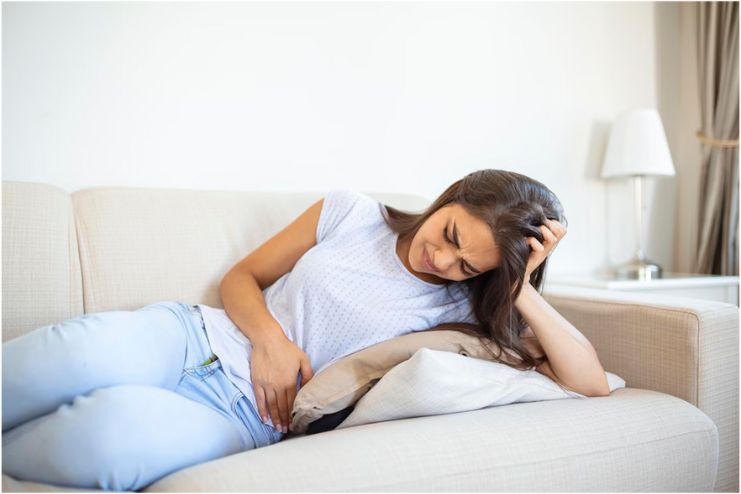
While many people adopt seed cycling with ease, it’s essential to be mindful of potential risks and side effects:
1. Gastrointestinal Discomfort: Consumption of too many seeds also increases fiber in your diet, which causes bloating, gas, or disturbed bowel movements, in case your body is not used to eating high-fiber foods.
2. Allergies: Some may have an allergic reaction to seeds used for seed cycling, such as flaxseeds, pumpkin seeds, sesame seeds, or sunflower seeds. An allergic reaction can cause itching or swelling, or it may affect your respiration. Being aware of any seed allergies is crucial before starting seed cycling.
3. Interference with Medical Conditions:
People with certain health conditions should be careful:
- Hormone-Sensitive Conditions: Phytoestrogens in seeds such as flaxseed are plant-derived compounds that may mimic estrogen in the body. Women with hormone-sensitive conditions are therefore advised to consult a healthcare provider before adding phytoestrogens to their diet.
- Digestive Disorders: Patients with digestive disorders like Diverticulitis are usually advised to avoid seeds since they can lodge into the small pouches in the gut lining, thereby aggravating their condition.
4. Interactions with Medications:
Certain seeds likely interact with medications. For instance, flaxseeds interfere with blood-thinning medications, thereby reducing their effectiveness.
Recommendations
- Consult A Healthcare Provider: Consult an expert before starting seed cycling, especially when there are any preexisting medical conditions or if you’re under any medications.
- Monitor How Your Body Reacts: You need to assess how your body feels after trying seed cycling. If any adverse effects arise you may need to alter the types or quantity of seeds consumed or discontinue the practice altogether.
In a nutshell, seed cycling should be safe for most; however, being aware of possible risks and side effects will keep you well-informed about making healthy lifestyle choices.
Conclusion
Stress, improper eating habits, and environmental factors have all led to an increase in hormonal imbalance. Seed cycling represents an excellent natural and holistic approach to keep hormonal imbalances in check.
This process improves reproductive health and possibly reduces PMS and menopausal symptoms. These small and simple dietary practices of including seeds in your diet can offer potential health benefits.
Pay attention to your body and make informed dietary decisions to support hormonal health.
References
- https://www.hopkinsmedicine.org/health/conditions-and-diseases/estrogens-effects-on-the-female-body
- https://www.creative-diagnostics.com/blog/index.php/estrogen-and-progesterone/
- https://www.uclahealth.org/news/article/7-signs-hormonal-imbalance-and-what-do-about-it
- https://www.medicalnewstoday.com/articles/321486
- https://www.verywellhealth.com/how-to-balance-hormones-8736764
- https://www.goodrx.com/health-topic/womens-health/seed-cycling-hormone
- https://www.stamfordhealth.org/healthflash-blog/integrative-medicine/seed-cycling/
- https://oasisindia.in/blog/understanding-seed-cycling-for-periods-pcos-and-fertility/
- https://drhyman.com/blogs/content/seed-cycling-101-the-ultimate-guide-to-balancing-hormones
- https://elara.care/nutrition/seed-cycling-for-hormone-balance/
- https://drgreenlifeorganics.com/blogs/health/supporting-hormone-balance-naturally-with-seed-cycling
- https://www.emilyjensennutrition.com/blog/what-is-seed-cycling
- https://nourishedbynutrition.com/seed-cycling-for-hormone-balance/
- https://culinahealth.com/seed-cycling-should-you-try-it/
- https://www.goodrx.com/health-topic/womens-health/seed-cycling-hormone
- https://www.womenshealthmag.com/health/a60930170/seed-cycling-benefits/
- https://blog.inito.com/seed-cycling-and-fertility/
- https://avivaromm.com/seed-cycling/
- https://www.verywellhealth.com/seed-cycling-5223734
- https://helloclue.com/articles/culture/seed-cycling-i-tried-it-and-dug-into-the-research-on-whether-it-works
- https://mcpress.mayoclinic.org/women-health/seeds-are-healthy-but-do-they-impact-hormones/
In this Article

